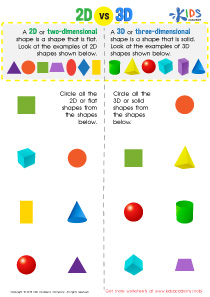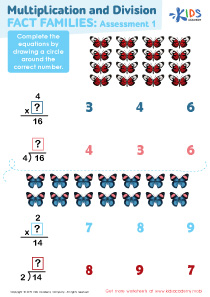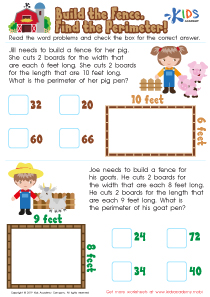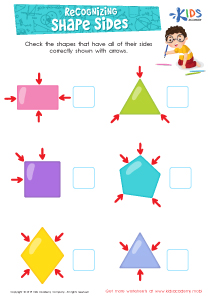Social Studies Lessons | Economic Systems, Preschool
0 results
Introduce your little learners to the world of economics with our engaging Economic Systems Lessons. Designed for preschoolers, our interactive worksheets and videos make learning about economic systems fun and easy. From exploring the different types of economies to understanding the basics of supply and demand, our lessons provide a foundation for economic literacy. Plus, our assessment quizzes help parents and educators track progress and ensure students have a solid understanding of the material. Get your child on the path to economic success today with our Economic Systems Lessons!
Economic Systems Lessons: Enriching Learning Experiences for Preschoolers
Imagine introducing your preschooler to the concepts of buying and selling. They may not understand it fully at a young age, but teaching them basic economic systems lessons can help them understand the value of goods and services, money, and exchange. It can give them a basic understanding of how the economy works and can play a vital role in their future financial decision-making.
Economic systems lessons for preschoolers are designed to help children understand the economy, with the use of interactive worksheets, educational videos, and assessment quizzes. The lessons aim to introduce preschoolers to the principles of money, trade, and exchange based on a clear understanding of the available production resources and the consumption of goods and services.
One of the distinct advantages of these lessons is that they are adapted to the age and stage of child development, making them accessible to even the youngest learners. Children tend to learn lessons more effectively when they are engaged with interactive methods such as videos, worksheets, and quizzes. This approach to learning increases their motivation to learn, leading to higher retention of information.
The lessons help to build an understanding of the different economic systems that exist in the world. This background knowledge is essential for children, because it equips them with key information for future career opportunities and business ventures. The lessons also help children understand how it is that things have value, and how we earn money to purchase the things we need and want.
In addition to teaching basic economic principles, the lessons also develop other important academic and life skills such as critical thinking, problem-solving, and analysis. They teach children to analyze the value of goods and services, negotiate prices, and to identify the needs of the market.
As children's knowledge of economic systems grows, they also start to understand the interdependence of people in society. They start asking challenging questions and exploring the role of businesses and individual entrepreneurs. These skills can have positive consequences in other fields like science, technology, and even math.
To sum up, economic systems lessons can give children a firm foundation in basic economic principles and understanding. The interactive nature of worksheets, videos, and quizzes help to engage kids so they can learn these concepts effectively. Not only does it help students to gain an understanding of world economics, but economic systems lessons also develop essential academic and life skills that are transferable to other areas of learning.















